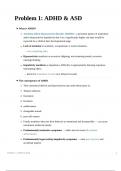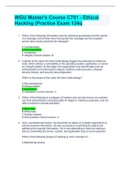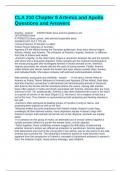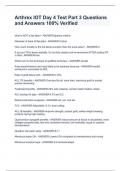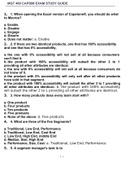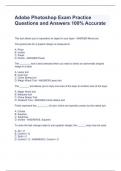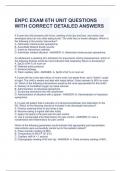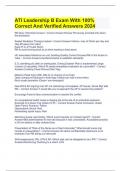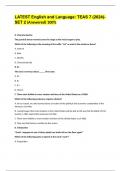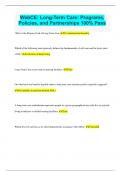Samenvatting
Summary - Clinical Psychology: Mental Health challenges (FSWP1-060-A)
- Vak
- Instelling
This summary includes the 7 problems from the course Clinical Psychology: Mental health challenges. Based on the required reading for each problem. In-depth and in detail summary that could be used as class-notes and as a summary for the exam.
[Meer zien]
